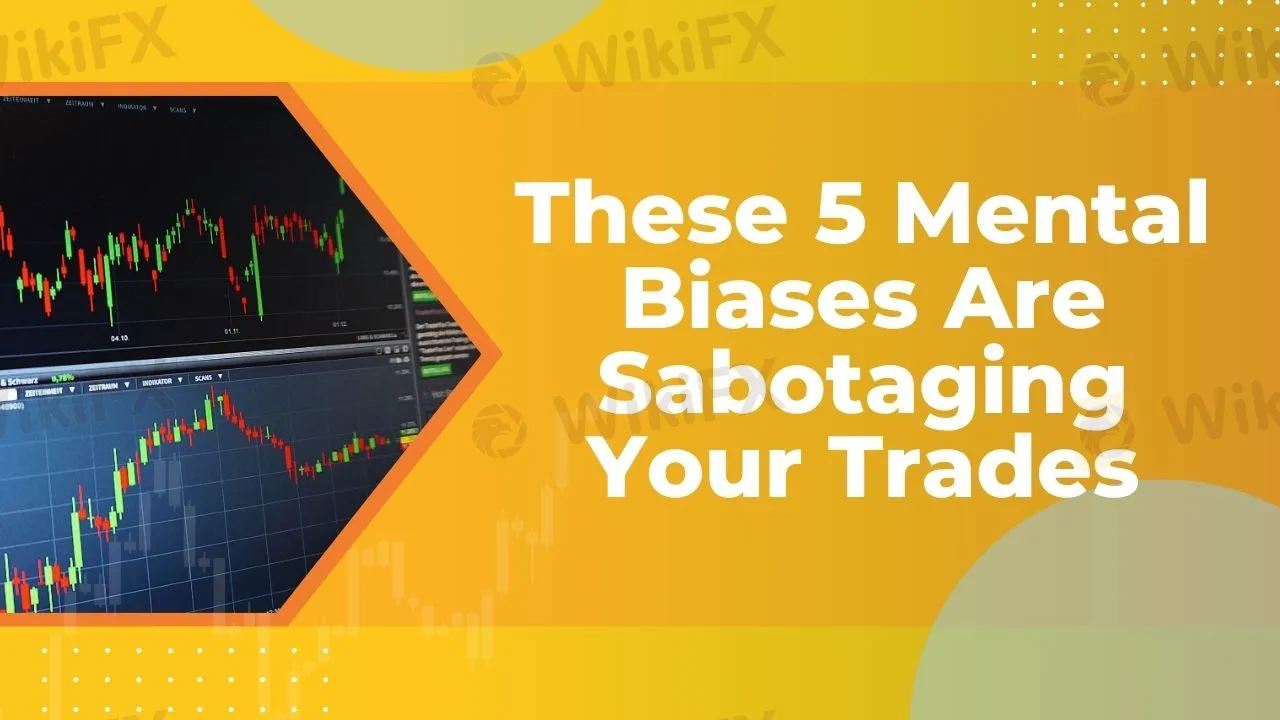These 5 Mental Biases Are Sabotaging Your Trades
Abstract:Discover how five cognitive biases silently sabotage your trading decisions, impacting profits and increasing the risk of losses.

In trading, emotions and psychological factors aren‘t just secondary; they directly affect every trading decision. Many traders don’t realize they are influenced by underlying mental biases, leading them to make irrational decisions and suffer losses. This article will detail five common cognitive biases that could be quietly affecting your trades and leading to failure.
Confirmation Bias
Confirmation bias refers to the tendency of traders to seek information that supports their existing beliefs while ignoring contrary evidence. For example, if youve decided that a particular stock will rise, you may focus only on news and analysis that supports this view, ignoring warning signals in the market. This bias leads you to overlook potential risks and ultimately make poor decisions.
Ostrich Bias
Ostrich bias is when traders choose to ignore negative market information, much like an ostrich burying its head in the sand. This mental bias is particularly evident when the market is unfavorable, and traders may avoid checking their account balances or hide the reality of their losses. Ignoring these negative signals often leads to more severe losses, as problems dont resolve themselves over time.
Loss Aversion Bias
Loss aversion bias means that the pain of losing is felt much more strongly than the pleasure of gaining the same amount. In trading, traders often hold on to losing positions, unwilling to admit the loss, hoping for a market reversal. This irrational behavior often leads to even larger losses because “waiting for a rebound” is usually futile.
Gamblers Fallacy
The gamblers fallacy is a flawed mindset where traders believe that past events influence the probabilities of future outcomes. For example, after a series of losses, a trader might think the next trade will surely be profitable. This overly optimistic expectation leads to greater risk-taking. The market is independent, and past trading results do not dictate future movements.
Hindsight Bias
Hindsight bias makes traders believe, after the fact, that they knew the outcome all along. This bias leads to overconfidence, making traders think they can predict market movements. In reality, these so-called “obvious outcomes” are often based on luck rather than systematic analysis or strategy. This false confidence can cause traders to overlook potential market risks.
Strategies to Mitigate Cognitive Biases
Recognizing the existence of these cognitive biases is the first step in reducing their impact. To mitigate these biases in trading, traders can take the following measures: First, stay calm and analyze market data rationally, rather than making decisions driven by emotions. Second, establish a clear trading plan and stick to it, avoiding impulsive decisions based on emotional responses. By maintaining an objective attitude toward the market and preventing the influence of emotional swings, traders can better control risks and improve their chances of long-term trading success.
Read more

How is AI Transforming Scams and Making Them Harder to Detect?
AI is revolutionizing scams, making them harder to detect. Learn how AI-powered scams work and expert tips to protect yourself from falling victim.

Why You Shouldn't Be Afraid to Trust Your Capital to Regulated Brokers
Discover why regulated brokers offer safety for your capital with oversight, security, and transparency, plus the risks of unregulated options. Invest with confidence.

Why People Fall for Online Trading Scams
Learn why people fall for online trading scams, common tactics used by scammers, psychological triggers, red flags, and how to protect yourself from fraud.

Why Forex Traders Should Prioritize VPS for Stability
Discover why Forex traders need VPS for stable trading—better uptime, faster execution, and reliability compared to regular hosting. Choose the right VPS for optimal performance.
WikiFX Broker
Latest News
Love, Investment & Lies: Online Date Turned into a RM103,000 Scam
Broker Took 10% of User's Profits – New Way to Swindle You? Beware!
Pi Network: Scam Allegations Spark Heated Debate
Broker Comparsion: FXTM vs AvaTrade
Account Deleted, Funds Gone: A New Broker Tactic to Beware Of?
Broker’s Promise Turns to Loss – Funds Disappear, No Compensation!
StoneX Subsidiary, Gain Global Markets Bermuda, Penalized for Trading Misconduct
El Salvador and U.S. Launch Cross-Border Crypto Regulatory Sandbox
The Instagram Promise That Stole RM33,000
Coinbase Launches Bitcoin Yield Fund for Institutional Investors
Rate Calc
